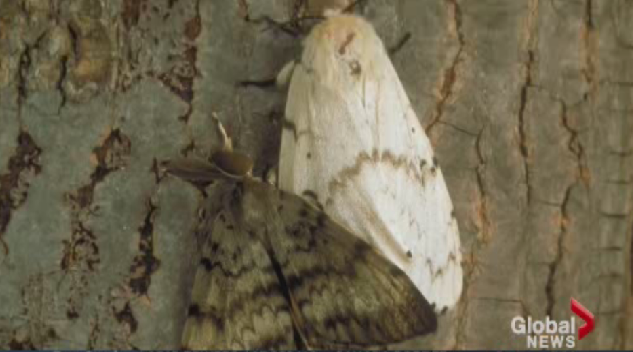Another season of spraying pesticide to fight the gypsy moth population in Hamilton and surrounding areas is set for next week according to the city.

Greensville, Ancaster, Carlisle and Waterdown will be the first receive treatment which will be executed by low flying helicopters.
In a news release, the city says residents in those areas should expect some traffic delays between 5 and 7:30 a.m. next week as choppers will fly about 15 metres above treetops applying a bio-pesticide.
“The bio-pesticide is an organic product that specifically targets gypsy moths and other caterpillars. The aerial spray will not eradicate the pest entirely, rather, it will regulate population size,” the city said in its statement.
READ MORE: Gypsy moth spraying planned for May in Burlington parks

Get daily National news
It’s expected that a second application will happen the week after that.
Meanwhile, the Hamilton Conservation Authority (HCA) will be targeting three hectares of the Dundas Valley Conservation Area at the end of the month.
Specific areas include a region east of Sulphur Springs Road which will close nearby trails between 5 and 8:30 a.m. between May 30 and June 15th.
The HCA estimates two days of spraying will be required.
READ MORE: City of Toronto braces for return of European gypsy moths this spring
The city began its pesticide control program in the fall of 2017 after it was determined by the Hamilton forestry section that moth populations reached population levels that required action.
Dark, hairy caterpillars can range between five and 60 mm in length and feed on a wide range of coniferous as well as deciduous trees with a preference for oak.
The insects have the ability to damage trees by consuming leaves which in turn can affect tree growth and the potential to fight off diseases.
The city claims the bio-pesticide being used does not have any negative effects on humans.
WATCH: Gypsy Moth spraying in Surrey





Comments
Want to discuss? Please read our Commenting Policy first.